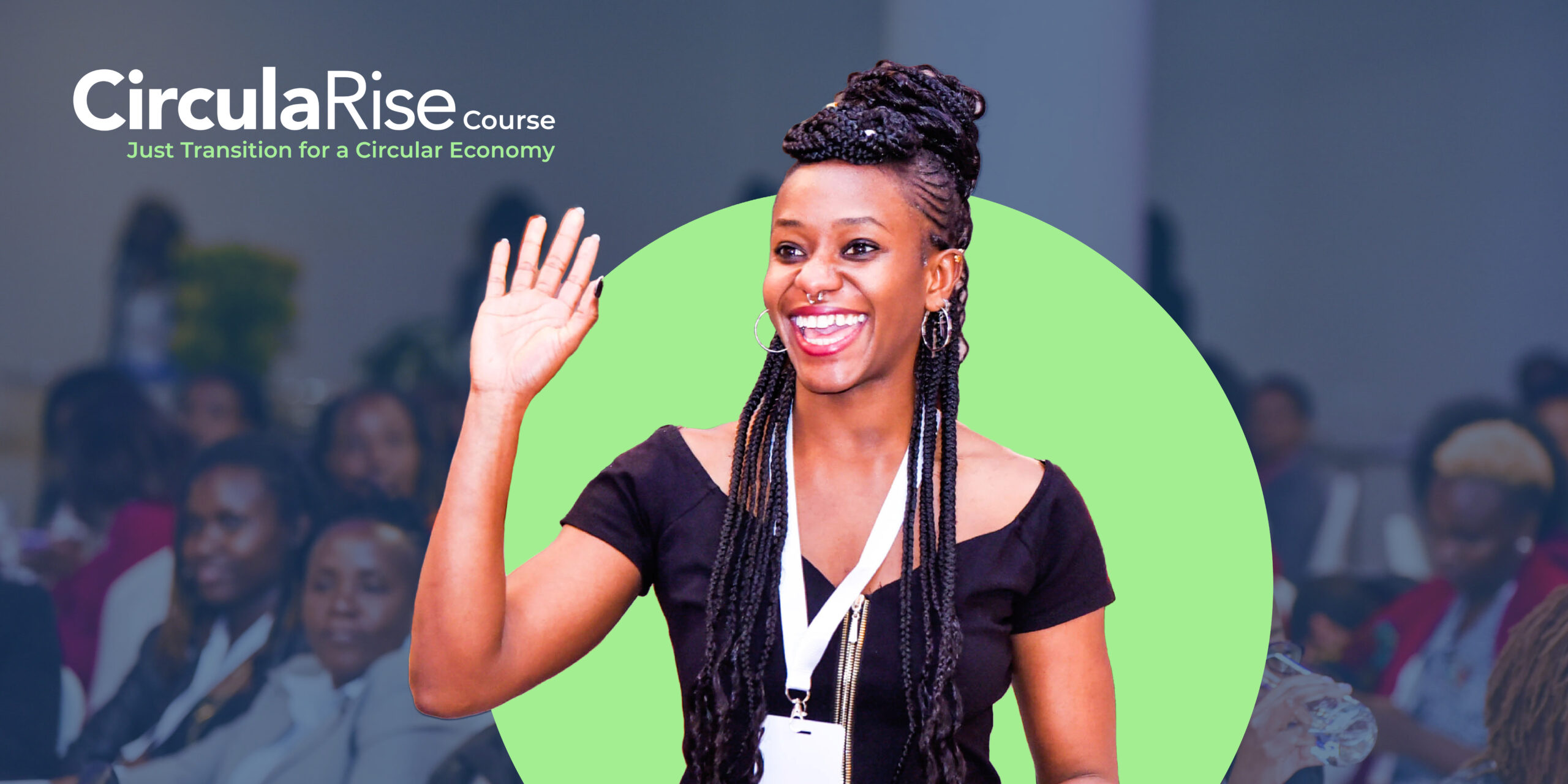
Yunus Environment Hub has launched our new CirculaRise Course on 15 April 2024 during the World Circular Economy Forum WCEF2024.
Hands on learning to build and implement inclusive, Circular Economy strategies.
The CirculaRise Course by Yunus Environment Hub is unique offering that links environmental and social impact through Circular Economy and Just Transition strategies. The course provides a clear implementation roadmap to the future of regenerative business practices across all industries including service businesses.
Why do businesses urgently need to shift to inclusive, circular models?
- 90% of all materials ever extracted and used around the globe are wasted, and less than 10% of those materials make it back into and are kept in the global economy, according to the Circularity Gap Report 2023.
- The linear economy, often refer to as the “take-make-use-waste” economy, is at the origin of this situation as it does not sufficiently consider the value of the different kinds of used materials (erroneously called “waste”) embedded in our system.
- This is where the circular economy comes in, bringing strategies that maintain the value of resources and products at the highest possible level, reduce waste and keep materials in a loop.
The shift to circular models very often only emphasizes the environmental impact, while leaving out the essential social dimensions such as ensuring decent work along the value chain and reskilling workers to meet new green job demands. Yunus Environment Hub identified a need to train business leaders and professionals with the skills and knowledge to identify and implement inclusive, circular strategies for holistic impact.
Through CirculaRise, participants learn to identify opportunities for social and environmental impact, understand how to measure and report impact metrics, and learn how to ensure a Just Transition in their business operations and along their value chain. By following a practical, hands-on approach participants gain the tools and knowledge to develop and implement strategies within their organisation or advise businesses on their transition.
“We saw a strong need for a socially inclusive approach to circular economy strategies. While most organisations have more or less a clear picture of their circular future often the social aspects are neglected, unknown or simply overlooked. A Circular Economy needs to consider social aspects and it helps organisations when this is done in a systematic way.” Christina Jäger, Managing Director Yunus Environment Hub
CirculaRise course scales impact from the CirculaRise Accelerator
The CirculaRise course builds off the success of the Yunus Environment Hub CirculaRise Accelerator, scaling best practice and frameworks to an online format to allow access to professionals across the globe. CirculaRise trainers and subject matter experts bring years of hands-on experience training and coaching businesses to identify, pilot, implement and scale inclusivie circular solutions.
“The CirculaRise accelerator was a great opportunity to expand on my knowledge of the potential of integrating circular economy approaches in my business operations.” – Madhvi Dalal, founder PadMad, CirculaRise Kenya Participant
Who is the CirculaRise course for?
The course is open to participants from all locations or industries tasked to develop inclusive and circular transition strategies.
Learn more about CirculaRise and register to join the next course.
Photo by Yunus Environment Hub